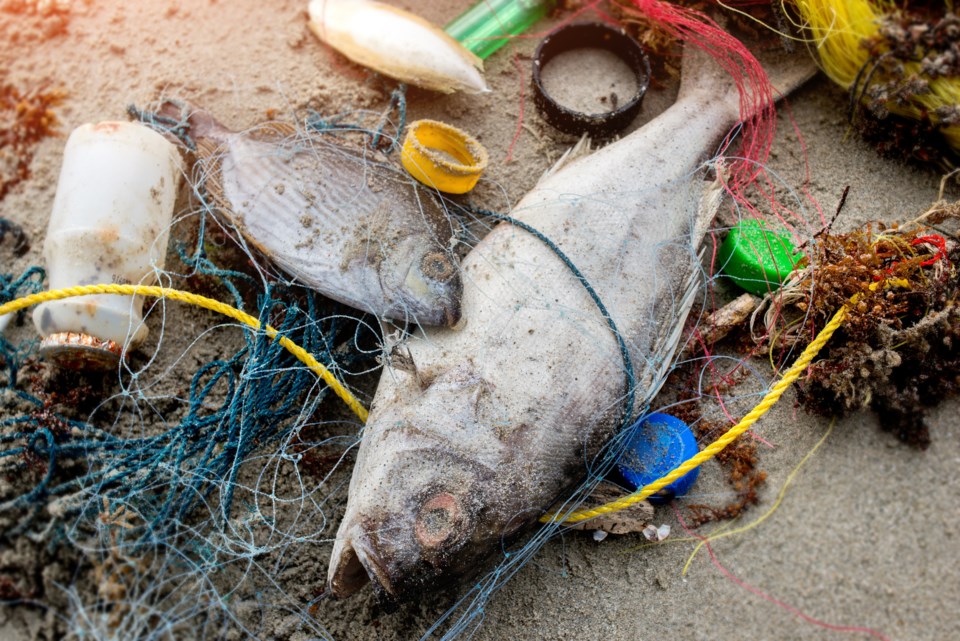A few surprising sources for these tiny bits of plastic include car tires, fibres from synthetic clothes, and so-called compostable plastics. Car tires are, in fact, a major source of microplastics in our waterways. As treads wear down, they don’t disappear, rather they get washed into drains, and eventually rivers and oceans. Synthetic fibres are shed from our clothes all day long, and in high concentrations when we wash and dry them. And, the compostable plastics are proving to be too good to be true. Many contain plastic strengtheners, contaminate recycling of regular plastic, or don’t break down in composting facilities which have shorter composting cycles than required for the plastic to compost.
Eight million tons of plastic enters the ocean every year – some of it as larger pieces, to be sure, but over time, exposed to the elements, will inevitably become the size of confetti. It’s only a matter of time before it makes its way into our bodies. Truth be told, it already has. A small Austrian study conducted with eight participants from around the globe, found microplastics in the stool of every subject – up to nine types were identified in each person. And, while small in size, the research reveals that plastic is more than likely passing through all of us. What its long term effects will be is yet to be uncovered.
What we do know is that plastic acts as an attractant for toxic substances like PCBs and persistent organic pollutants. Plastic from textiles that we wear, which is getting into our water and the air we breathe, is also affected by harmful dyes. Perhaps this will get our attention. It may be easier to dismiss distant gyres full of hard to see plastic litter, but what about when it is on our plate? Without a doubt, none of us wake up in the morning intending to feast on plastic food seasoned with a dash of carcinogens.
So, maybe it’s time to finally start bringing your coffee mug to the cafe, investing in a stainless steel straw, carpooling a bit more often, and checking labels to ensure your clothes are made of natural fibres.
(Re)commit to a more plastic-free lifestyle and you’ll also be leaving a less synthetic planet for the next generation.
Let’s Talk Trash is the qathet Regional District’s Waste Reduction Education program. For more info about microplastics, tune into Let’s Talk Trash’s latest podcast on SoundCloud or CJMP.ca



